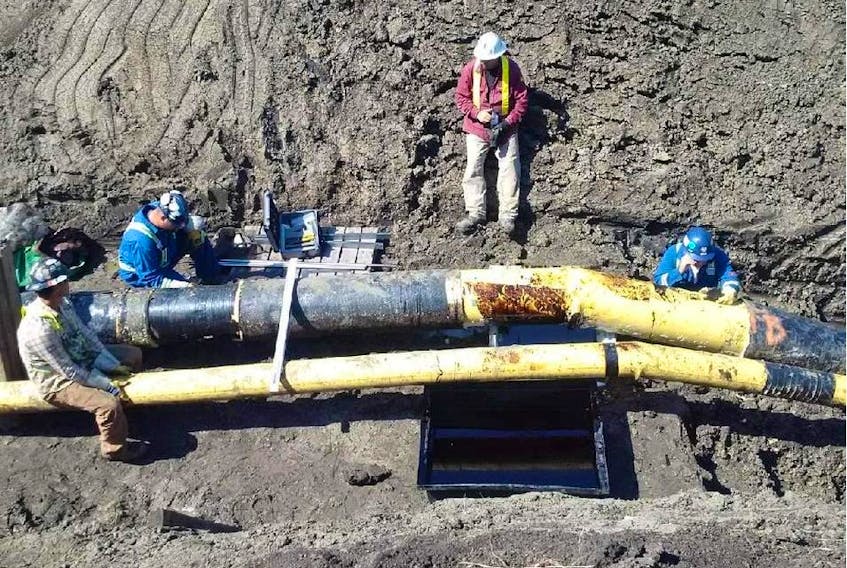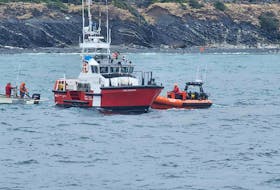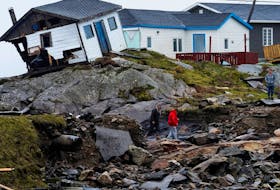The decision to fine a Husky Energy Inc. subsidiary almost $4 million over an unprecedented pipeline spill sends a strong signal about the importance of environmental protection, according to the head of an oil and gas industry association.
The “significant” and “fair” fines handed down in a Lloydminster courtroom this week make clear that regulators and prosecutors are not going to treat spills lightly, said Explorers and Producers Association of Canada President Tristan Goodman.
“We don’t want these incidents occurring, obviously, and we think we’ve got some strong regulations in place to demonstrate that when these occur, they’re treated seriously and improvements are made,” Goodman said in an interview on Thursday.
Husky Oil Operations Ltd. was fined $3.82 million on Wednesday after pleading guilty to a pair of federal environmental charges and one charge laid under Saskatchewan’s environmental protection legislation . Seven other federal charges were withdrawn.
The charges relate to the Calgary-based company’s July 20, 2016 spill, which released 225,000 litres of diluted crude near and into the North Saskatchewan River, prompting a scramble for clean drinking water and a $144-million cleanup effort.
Speaking to reporters after Judge Lorna Dyck delivered the sentence, Husky vice president of pipelines Duane Rae said the “damage has been done” both to the company’s reputation and the entire Western Canadian energy industry.
Goodman said while there is no doubt the “heightened” national debate over pipelines means such incidents receive additional scrutiny, oil and gas corporations have long strived to make their systems as safe as possible.
He agreed with Dyck’s observation that companies must consider the environment rather than simply pursue profits.
“I think when the industry looks at these things, they put the environment and the public at the forefront. As we move forward, you always have to look at how we can improve that. I think that’s what’s happened in this situation.”
For example, Rae told reporters outside court, Husky has taken many steps to improve safety since the spill, including establishing a 30-minute window to solve leak detection alarms before shutting the system down.
This spring, the company also created a new executive position dedicated to safety and reporting directly to CEO Rob Peabody. Peter Rosenthal now serves as Husky’s first senior vice president of safety and operations integrity.
Husky has experienced several incidents in recent years, including the spill in Saskatchewan, a refinery fire in Wisconsin and a close call between an offshore oil production vessel and an iceberg off the Newfoundland coast. Husky has said they are unrelated .
“Improving process, safety, and reliability at Husky is the No. 1 objective of the entire team,” Peabody told investors last month.
The Saskatchewan government, which has been repeatedly criticized for its handling of documents related to the spill , is meanwhile expected to release its two-year-old report into the incident “in the next day or so,” as it has previously pledged to do .
In an interview, Energy and Resources Bronwyn Eyre said she respects the judge’s decision and is pleased the case has been resolved. Eyre went on to praise the province’s efforts to improve pipeline safety over the last three years.
Those efforts include “enhanced” pipeline regulations, additional resources for inspections, new inspection and audit powers, capital for information technology enhancements and updated penalty provisions, Eyre said.
The government does not appear to be considering establishing an arms-length regulator as repeatedly suggested by the Saskatchewan NDP. Eyre said she is “very confident” in her ministry’s ability to handle pipeline regulation.
The government’s record on pipelines, however, came under fire years before the spill.
In 2012, the provincial auditor’s office handed the Ministry of the Economy a series of seven recommendations aimed at improving pipeline safety. Five years later, Judy Ferguson concluded that just four of them had been fully implemented .
“Right now, we actually don’t think that they’re effectively monitoring oil and gas pipelines ,” Ferguson told the Saskatoon StarPhoenix at the time, while the government insisted that preventing pipeline spills was “very, very important.”
In her latest report, delivered earlier this month, Ferguson found that the Ministry of Energy and Resources had implemented the remaining three recommendations, including the performance of a “risk-based assessment” of every pipeline in the province.
Asked whether those recommendations should have been implemented sooner, Eyre said the spill was “a wake-up call of sorts.”
[email protected]
twitter.com/macphersona
Copyright Postmedia Network Inc., 2019









